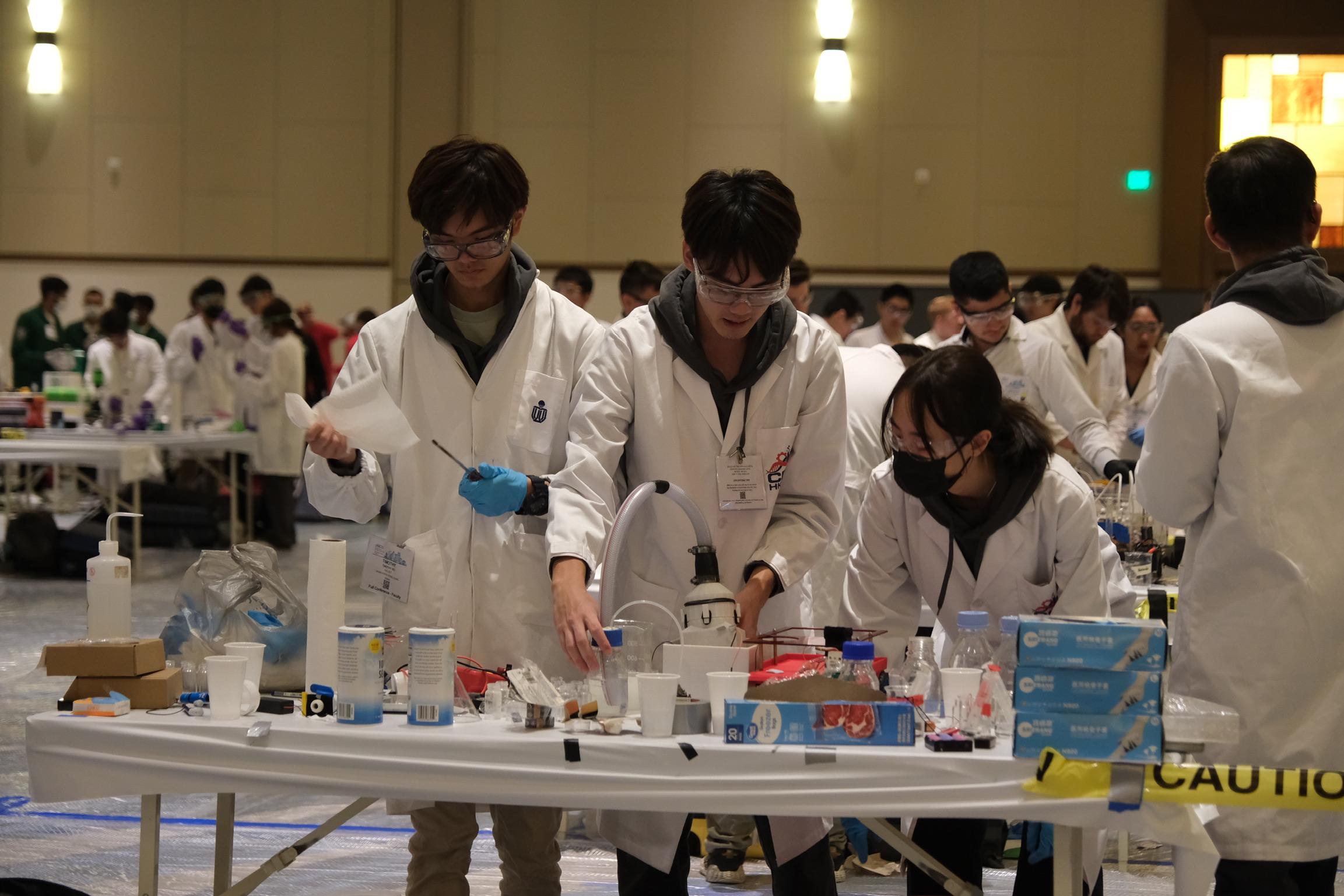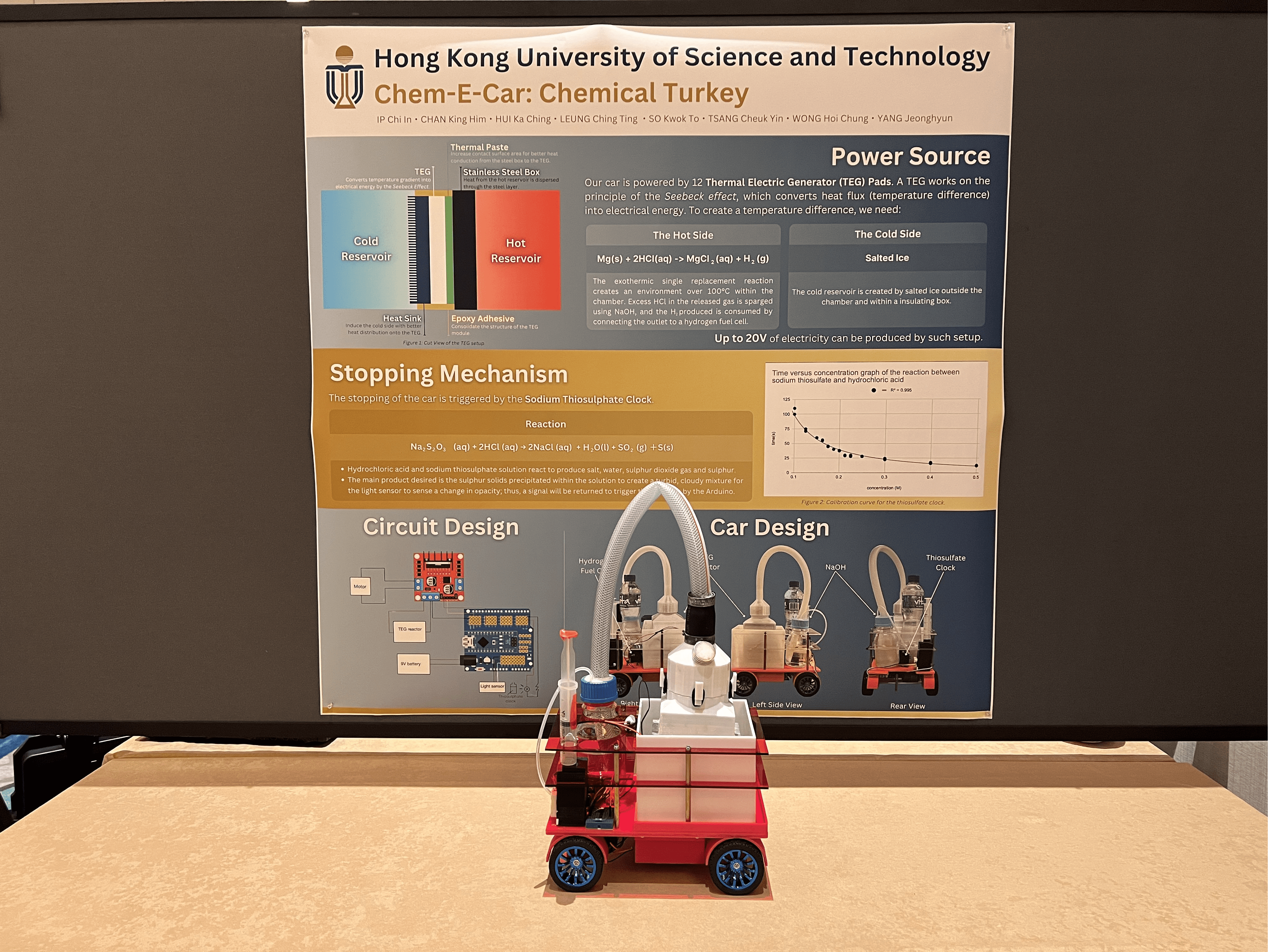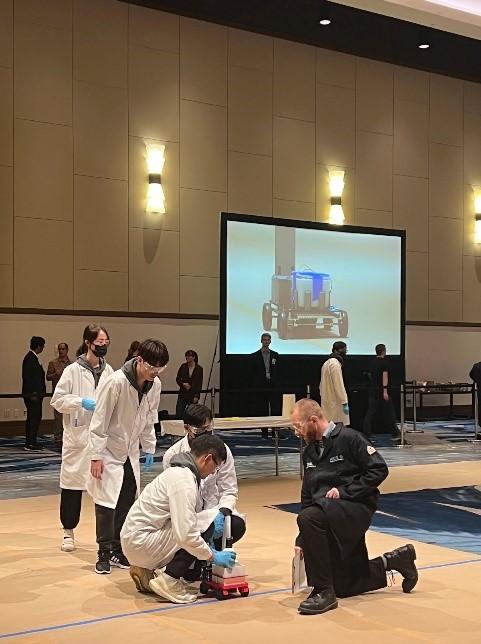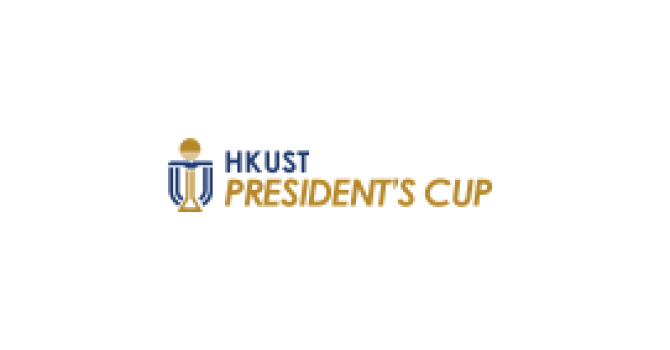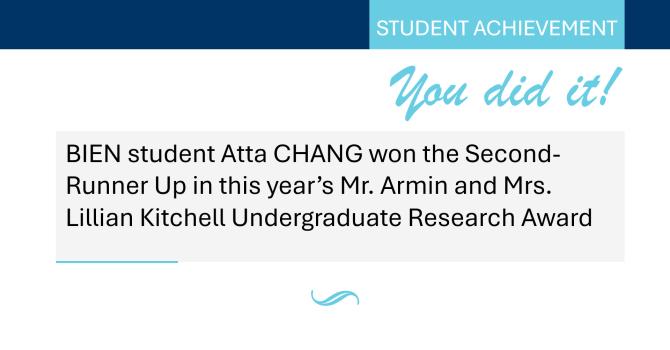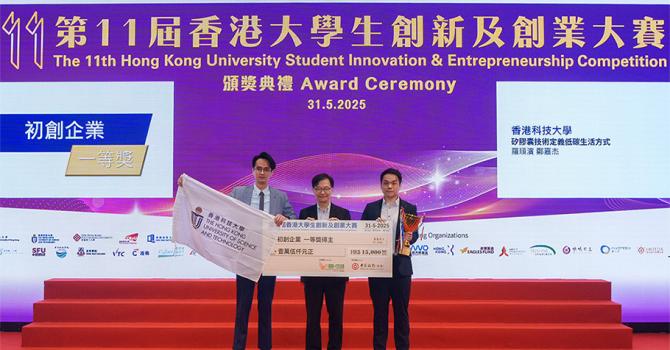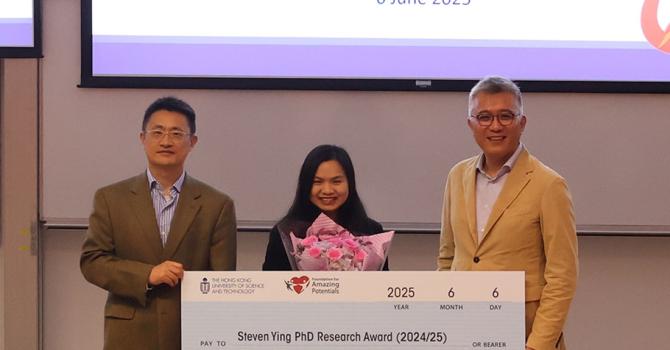HKUST Chem-E-Car Team Placed 11th Globally and Won Best Video Award in 2023 AIChE Chem-E-Car Competition
The Hong Kong University of Science and Technology (HKUST) Chem-E-Car Team represented Hong Kong in the renowned Chem-E-Car Competition 2023 organized by the American Institute of Chemical Engineers (AIChE) and came in 11th globally and second in Asia. The team also won the Best Video Award for their amusing promotional video of their vehicle.
The team, named Chemical Turkey, consisted of eight Year 3 undergraduates from the Department of Chemical and Biological Engineering who were supervised by Prof. Tom LUO Zhengtang and Technical Officer Mr. Timothy TANG Kam-Tim. The annual AIChE Chem-E-Car Competition engages university students from around the world in designing and constructing a car powered by a chemical energy source, that will safely run a specific given distance and stop accurately.
Motivation behind: Transform theory to a tangible product
Starting from scratch, this competition requires students to have a deep understanding of both chemistry and engineering principles in order to build a real-life running car that could safely run a specific distance and come to a stop. It is the practicality that brings them together for this project, as they expressed, “What makes this program special is it combines everything we learn and turns it into an actual product!”
The unexpected “expected” challenges
The team faced difficulties from all angles and went through the “all can go wrong” experience. They shared openly, “We have had countless failures, from the first prototype that came close to a disastrous explosion to alignment problems with the car, and even the change of the weather affects our car’s performance. In short, the end product was something we totally unexpected!”
Two weeks before flying to Orlando for the competition, they were informed to submit a documentary video highlighting the complete car-building process. However, their car was still not functional at the time due to a chemical reaction triggered by fluctuating temperatures. And that wasn’t all. The team leader, Jacqualine, further added that the last trigger that could have jeopardized the entire project was the last-minute notification from the organizer that their stopping mechanism did not qualify for deployment in the competition.
The life-death situation
• 2 weeks before the competition
Video production submission was required to showcase their car, but their car was still not working.
• 1 day before the competition
They found themselves in a foreign country with the urgent need to find replacement parts and a workable design.
• 12 hours before the competition
Return home or come up with a new solution: Faced with a highly pressing dilemma, the team had to either come up with an alternative solution to qualify for the competition or risk being sent back home from Orlando.
• 2 hours before the competition
Their car could not meet the target distance of 25 meters. It could only go as far as 5 meters!
Solution to the battle: Teamwork
The team reflected that it was the great spirit, dedication and teamwork that made them endure those challenges. Anticipating the forthcoming challenges in the technical aspect, research and development, resources (including cost and laboratory access), and time constraints, the team swiftly divided their manpower, leveraging each individual’s expertise as soon as the project kicked off. A leader was appointed to oversee the entire project, followed by the designation of team members into the electronics team (responsible for the car’s mechanism), battery team, stopping mechanism team (for calibrating the car to stop without any mechanical brakes), and the video production team.
They reiterated the importance of supporting each other to withstand this battle. Their dedication was vividly shown through the creation of their own team T-shirts and the assigning of a name to their car that incorporated HKUST’s icon “Red Bird”, also commonly known as “Turkey” by HKUST students.
No pain, no gain, high reward
The team shared that in addition to the challenges of the Chem-E-Car project, they also had to manage their daily schoolwork at HKUST concurrently, despite being in different time zones. The team reflected, “There were no day and night; the clocks ran 24 hours a day.” They now share a common mantra: “At 3 am, let’s get up and work with Hong Kong!”
Throughout this project, they also learned much more than just the skills taught in school, which they found extremely helpful and crucial for their career and personal development. Completely irrelevant to chemical and biological engineering, they had to learn about design, electronics, 3D printing, budgeting for their competition and accommodation, and even cooking for a large group during their 11-day trip.
Finding meaning to life: Sense of achievement
It is worth mentioning that while the team can opt for the easy, quick conventional method of using hydrogen fuel cells as the power source for running the car, they have used the thermoelectric generator (TEG) to generate power in contrast to other contestants. This can greatly reduce the production cost, yet it is much more demanding to make it work. Their scientific spirit of discovery and innovation is clearly seen through the glimpse of their words as they mentioned, “There is no point in following something that you know definitely will work. It is more important to learn from trying out something you’ve never been touched before. Sense of achievement brings meaning to life.”
Tips for new comers: If you want an unforgettable memory, this is the place!
Encouraging junior students to participate, they highlighted the learning opportunities and personal growth offered by this project. Their exceptional teamwork and problem-solving skills not only made them achievers but also enabled them to gain unique memorable lifetime experiences that one would otherwise not possibly have.
“With eight of us, when it came to disagreements, we never argued, we knew we were heading in the same direction, it was all about one team spirit and one goal. We made a lot of good friends with strong bonding that we believe we will keep holding.”
The most memorable thing
Aaron, Chloe & Gordon: It’s the time together and the team feeling, from cooking, doing homework with joint deadlines, facing adversities. Precious and unforgettable!
Eric, Jacqualine & Tina: The project/competition itself. There were lots of trials and errors, ups and downs, a sense of stress and failures, yet we then learned what teamwork, project management, and resilience are about.
Eagle & Timothy: Our car finally worked! It’s the happiest moment, and everything felt rewarding. Could this be the engineering experience?!
Key to success
This year, a novel approach was attempted by the team, where a system of thermoelectric generators (TEG) were implemented as the core of the power source, instead of using typical hydrogen fuel cell or ion-batteries. In combination with an exothermic reaction of magnesium in hydrochloric acid, plus a salted ice bath cold reservoir, a steep temperature gradient is created between the TEG pads which induces the Seebeck effect; this generator setup produces a voltage output upwards of 20V. Being able to accurately stop the vehicle was also vital for the competition. Instead of the classic iodine clock, a sodium thiosulphate clock was used in combination with a photodiode light sensor and Arduino motor driver setup.
Chemical Turkey’s remarkable success was a result of the students’ collaborative efforts to intricately incorporate different disciplines (mechanical, electrical, and chemical engineering) into the design and development of their chemically-propelled vehicle. With much effort and investment put into researching and refining the vehicle, the team was able to achieve a compact and comprehensive design even at a significantly lower capital cost than other participating teams at US$150 only. The competition would not have been as successful without the consistent effort and organized teamwork from each member of the team.



